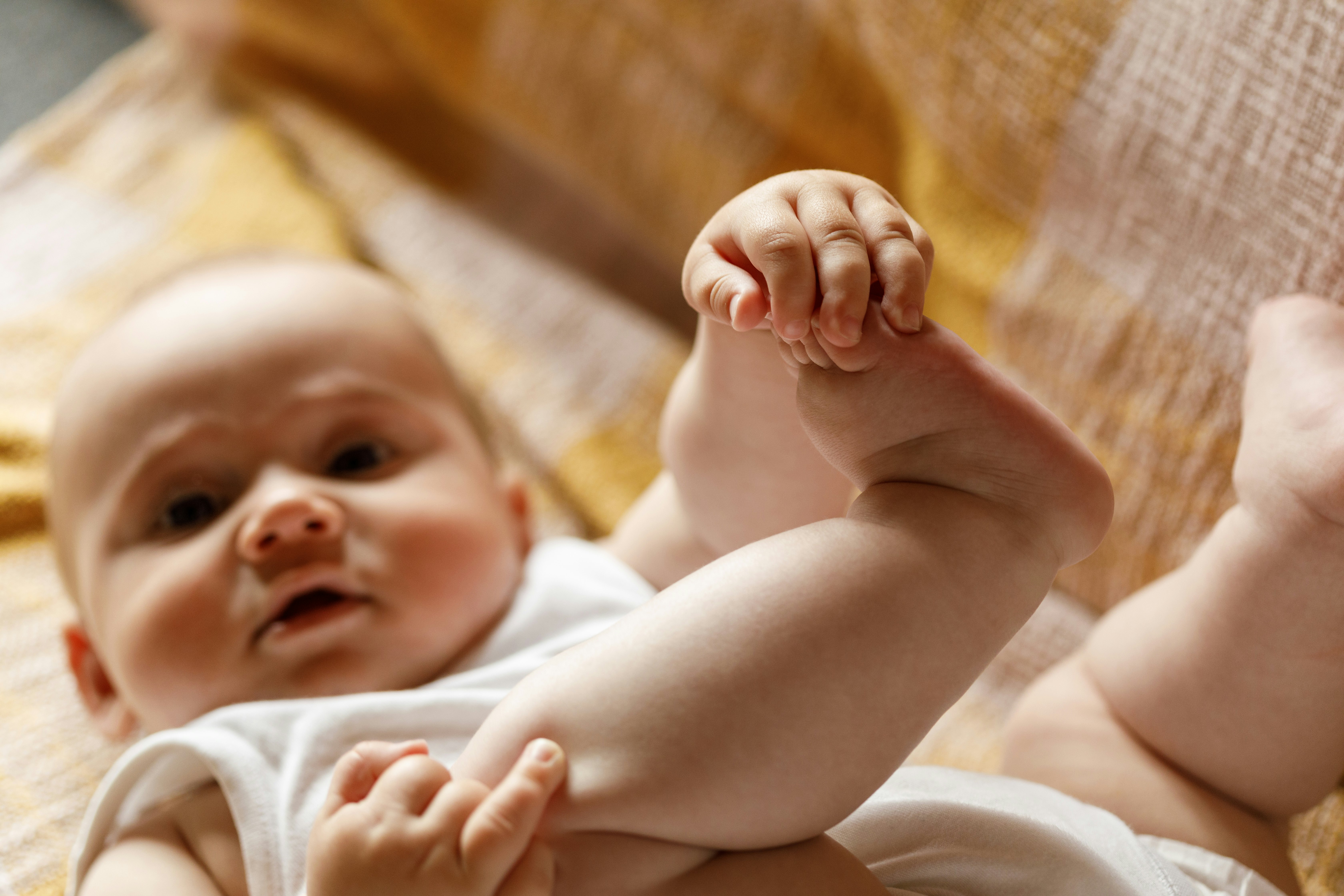
If you woke up this morning to squeeze in a workout before work or get your kids ready in time for school, you were exercising your ability to make purposeful decisions, a.k.a. agency. We often don’t give second thoughts to this quintessential characteristic of all living things. Yet, the question of where agency arises and how our environment factors into that calculus has long puzzled scientists. How — and when — do we learn our power as individuals?
As infants, a new study published Monday in the journal PNAS suggests. Researchers at Florida Atlantic University captured the moment when infants, tethered to a crib-mounted mobile, “realized” their kicking had consequences, making the mobile sway, and that they were in control.
“Positive feedback amplifies and highlights the cause-and-effect relationship between infant and mobile motion,” J.A. Scott Kelso, the study’s senior author and neuroscientist at Florida Atlantic University, said in a press release. “At some critical level of coordination, the infant recognizes its causal powers and transitions from spontaneous to intentional behavior. This aha! moment is marked by an abrupt increase in infant movement rate.”
The fact infants discover their ability to cause things to happen through coordination, such as kicking or other motions, has been observed in the past, the researchers write in their paper. But there hasn’t been concrete, measurable proof that such cause-and-effect signified some sort of conscious agency.
Potential proof comes from an experimental setup called a Mobile Conjugate Reinforcement paradigm used since the 1960s to study memory and learning in children as well as agency.
In this case, researchers had sixteen three- to four-month-old infants with their little feet tied to a hanging mobile (those decorative or interactive objects above a crib) via a ribbon. Depending on where the ribbon was tied, kicking may or may not make the mobile move. The babies’ foot and mobile motions were tracked in four experimental phases: no mobile movement, mobile moving independent of baby, baby’s kicks making the mobile move, and no mobile movement again.
The researchers found that while the babies tended to move both feet pretty equally when they weren’t tied up to the mobile — something they expected to see — kicking was significantly stronger when tethered. This suggested that the babies were learning that they could actively control and coordinate their actions to make the mobile move, setting the stage for them to discover their agency.
Not only the infants' active movements but also the pauses between their movements (referred to as "stillness") were found to be significant and carried meaningful information. For example, during tethering, the researchers noticed the stillness punctuated bursts of kicking activity. This seemed to indicate the babies were exploring how their actions (or non-action) played into their ability to control things around them.
“That the mobile moves when the baby moves but not when the baby pauses—like Cezanne’s pauses between brush strokes—confirms to the baby that ‘I can make things happen’,” the researchers write in their paper.
Not everyone is convinced. While these findings appear to illuminate the origin of agency, there’s an ongoing debate over whether mobile experiments can actually demonstrate or prove agency in infants. In a June 2022 study published in the journal Developmental Review, the authors of the paper argue that mobile experiments don’t really test whether babies have true control of their movements or if it’s just a reflexive action. This limitation would require scientists to come up with new experiments that actually measure whether babies are intentionally controlling their actions because they want to, not just because their bodies naturally react to what they see and feel. As babies are not the most vocal of subjects, such studies are exceedingly difficult to pull off.
For now, we can let parents make the final call on whether their little kicker truly understands their individual abilities and ability in the world to impact change — or whether they just like kicking and watching things fly. Either way, they sure are cute doing it.







